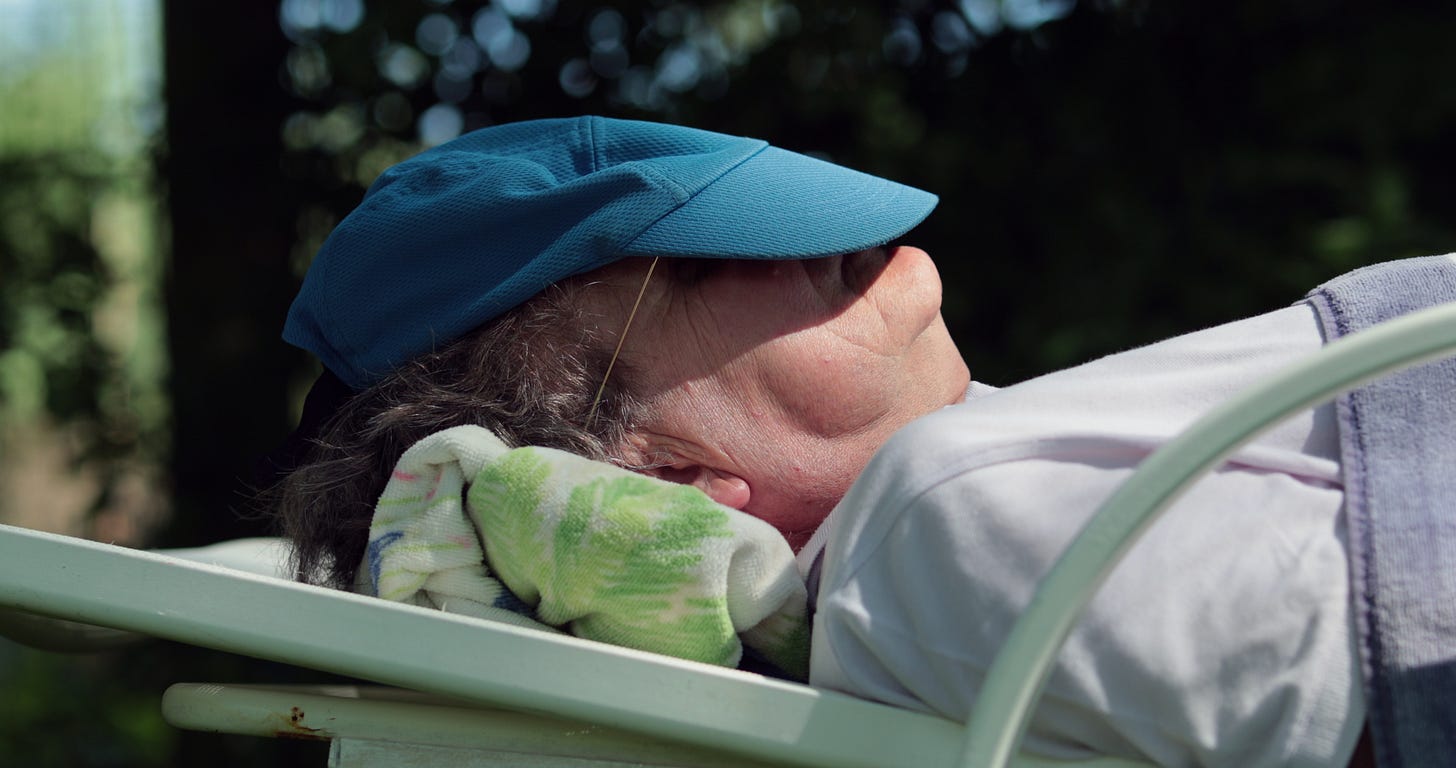I can’t remember when I first had an afternoon nap. Now, when I say that, I certainly remember being in Grade 1 or 2 and having the teacher tell the class it was time to put our heads on our desks and have a nap.
I never did. Back then, I thought it was stupid to be forced to fall asleep in an awkward position. Especially when I wasn’t the slightest bit sleepy.
No, when I say I can’t remember my first nap, I mean as an older person.
I will say that when I fall asleep during the day, I mean I FALL ASLEEP.
Is it a “senior” thing? Well, yes, it turns out, it’s very much a “senior” thing.
Of course, whenever you google something in a search for a definitive position or explanation, Google throws everything including the kitchen sink at you.
For example, when I googled “Naps and Older People,” I saw these results:
· Extended Napping In Seniors May Signal Dementia (good grief)
· How To Continue To Reap The Benefits of Napping As You Get Older (when do they figure we started??)
· Study of Sleep in Older Adults Suggests Nixing Naps (fat chance)
· Can A Nap Boost Brain Health? (This certainly puts the boots to the first topic)
So, I guess there is no definitive, one-size-fits-all position on the subject.
That’s fine. I know why I nap; it’s because I don’t sleep well at night. Sometimes I can get six hours on the trot but that’s rare, these days. Last night, for example, I was asleep by midnight and wide awake, staring at the ceiling at 4 am.
There was an “observational study” on napping done in China involving 2,214 healthy people 60 and older. Apparently, afternoon naps in China are very common.
The study demonstrated that those who napped four times a week for at least five minutes were cognitively sharper than non-nappers. But, more than 30 minutes in length and more than four times a week seemed to impact cognitive ability.
But, oddly, the study also found that those who napped at specific times rather than when they felt sleepy, scored better cognitively as well. Maybe that’s why we all had to do it in grade school. But I doubt it…
The folks at Frontiers, a research publishing company, pulled together the results of numerous studies on sleep, nocturnal and diurnal sleep patterns and duration, and published the aggregated results.
One of the statements that jumped out at me was this one: “Importantly, sleep parameters change with aging (Ohayon et al., 2004). In adults, total sleep time and sleep efficiency decrease with age, while sleep latency and wake after sleep onset increase with age (Ohayon et al., 2004). Thus, the ability to maintain sleep decreases in older adults, which results in a shortened nocturnal sleep duration and an increased number and duration of awakenings during the night…”
If this is true, then why do so many wellness folks and fitness instructors state that older people need at least seven hours sleep a night as a key to maintaining good health? If our nighttime sleep needs and patterns change as we age, then it is difficult for many of us who are older to get that magical seven hours a night.
Hence the need to nap during the day.
The Frontiers study compilation also points to medications and health issues as major contributing factors to daytime napping, which makes perfect sense. It’s a shame, though, that drug-induced drowsiness is a major cause of napping.
According to Baptist Health, a lack of sleep can affect testosterone levels in men. Since testosterone begins to decline after age 40, so the evidence indicates, a lack of sleep can exacerbate the matter for a man.
But, by getting more sleep, men can actually increase testosterone levels. Assuming you’re not over 40, one supposes.
Baptist Health does offer some good tips for maximising sleep quality. A big one is to nix any screen time within one hour of going to bed. The blue light that’s emitted from your screen has a detrimental effect.
So, to nap or not to nap? Have we created yet another health worry for ourselves?
I refuse to accept that I fit into any mold. I will continue to “listen” to my body and let my body determine what’s best for me when it comes to sleeping at night or napping during the day.
One final note: this newsletter was written after an hour-long nap. Guilty as charged…






I have been aware of the benefits of a nap, even a quick one, in the middle of the day since my teens. Science and societies (siesta) have proven it. When I was a TV news reporter, I might take a ten-minute nap in the back of the live truck on the way to a location. Working from home, I would take a short "power nap" as a part of my lunch break. From my 20s until now, naps are like a wonderful reset and boost to my energy and cognitive function.